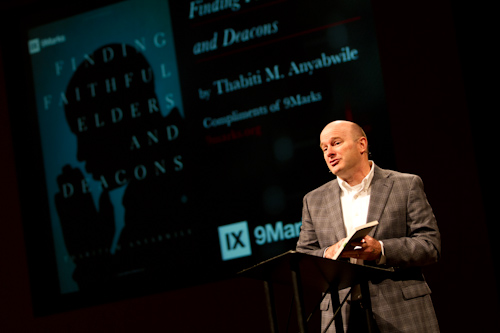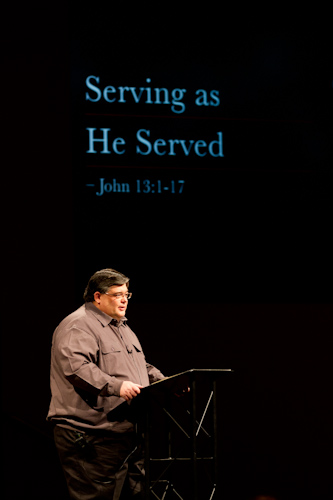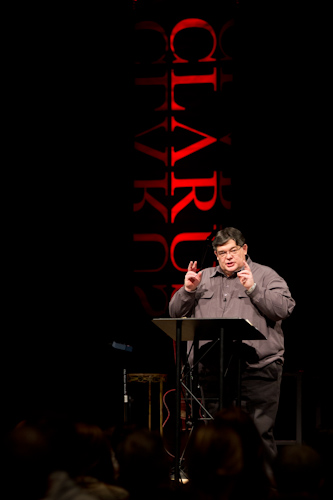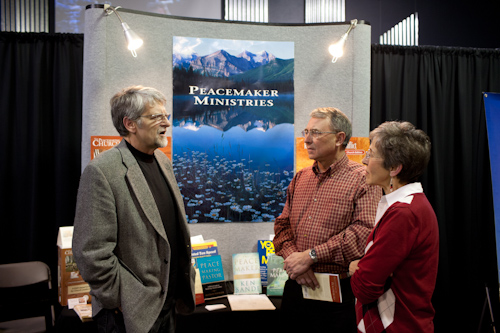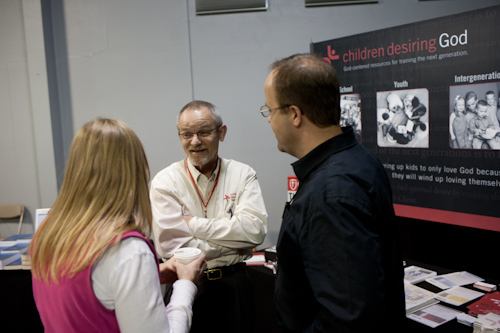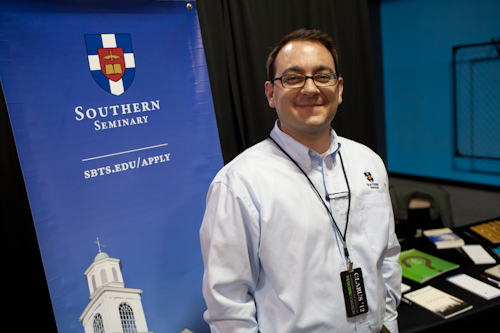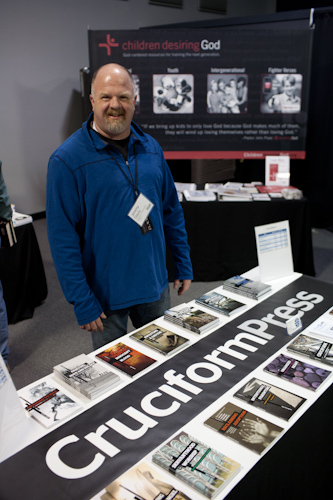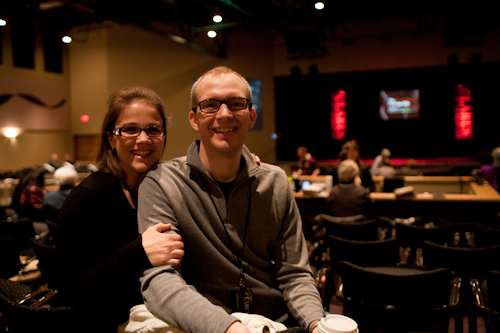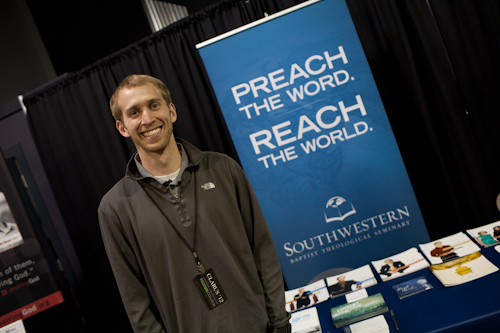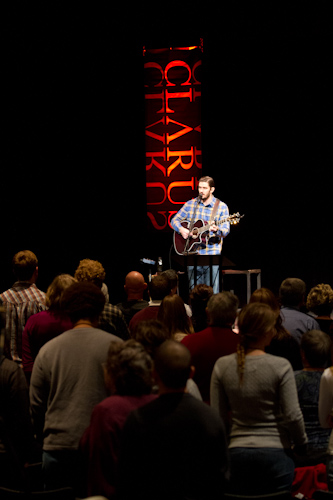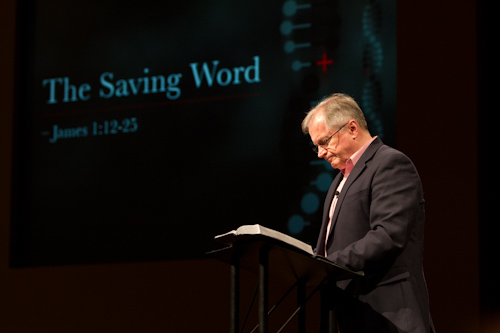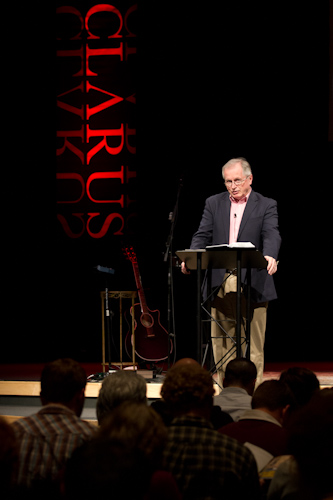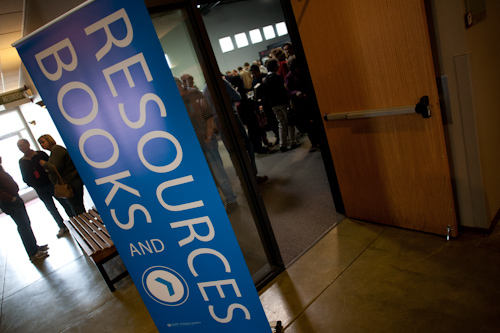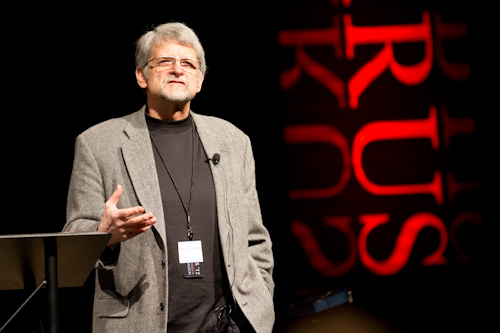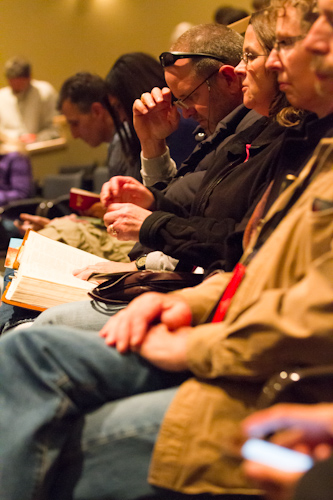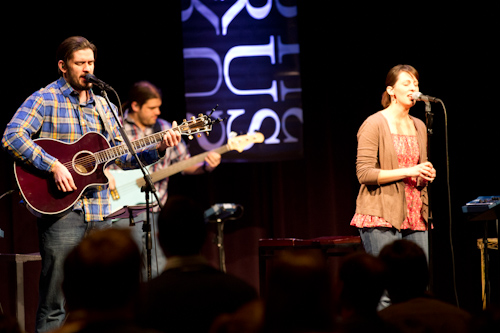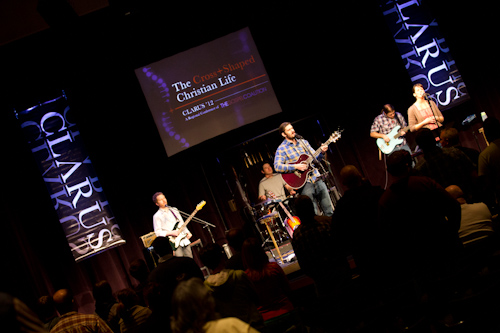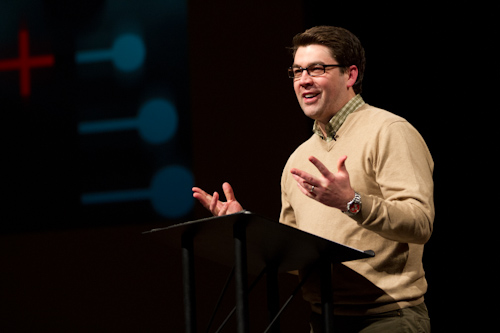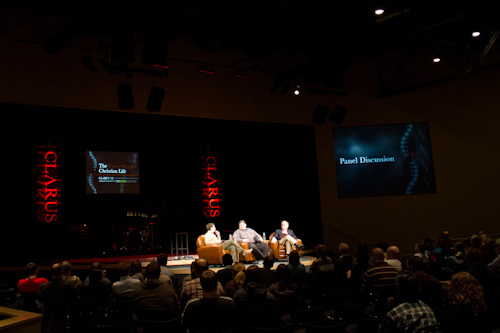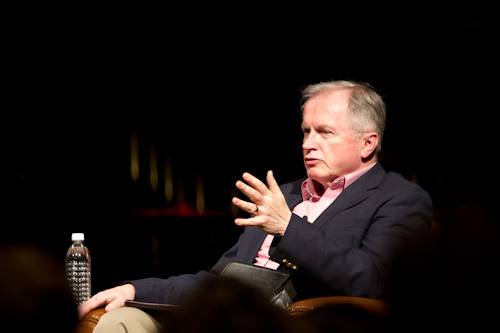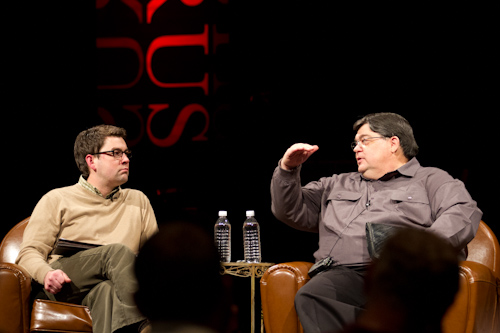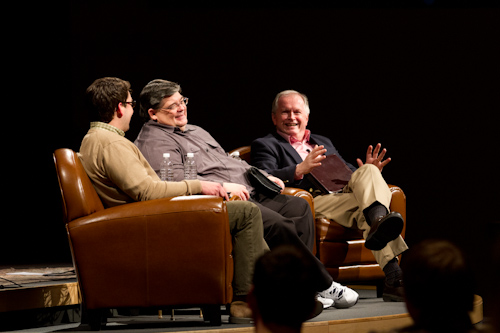Archive for March 11, 2012
Mar 11
Session 6 Recap: Panel Discussion with Carson and Zaspel
Editor’s Note: John Hunt is the Senior Pastor at Covenant of Grace Church in Albuquerque, NM. He is a member of the Albuquerque Chapter of The Gospel Coalition. This post is a summary of a Panel Discussion with D.A. Carson and Fred G. Zaspel from Saturday evening, March 10.
••••
The question and answer segment of the conference dealt with three areas related to the Christian life: sanctification, old nature/new nature, and pacifist/activist approaches to Christian living.
Asked for a good definition of sanctification, Dr. Zazpel pointed out four senses: (1) positional sanctification, wherein we are sanctified in Christ; (2) definitive sanctification, wherein we are sanctified or set apart by Christ in the gospel; (3) final sanctification or glorification; and (4) progressive sanctification wherein we are progressing in holiness. To this Dr. Carson pointed out that while justification and sanctification are distinct, they are not inseparable. Justification and sanctification flow out of our union with Christ.
Dr. Carson explained that holiness is really an adjective for God. He represented holiness as three concentric circles. The center circle is God Himself, or Holy, Holy, Holy. The second circle is those things associated with God. For example, the shovel in the Temple was holy, not in itself, but because it was related to God. The third circle represents people. It is at this point that morality enters the discussion. However, it is not so much morality that is in view. God is not telling believers to be moral because He is moral. Rather, He is calling believers to become peculiarly His.
Related to this issue is Warfield’s denial that Christians have two natures. Dr. Zazpel pointed out that for Warfield, Christians have been renewed and that the grasp of sin has been broken. During the conversation, Romans 7 was bought up and discussed. It seems that the bottom line is this: the Christian must deal with a renewed nature that must eradicate sin. It’s not like two natures are warring against one another. Rather, it is the “I†who struggles with remnants of sin, but the “I†does so from the vantage point of a new, or renewed nature.
Closely related to the above discussion was the question posed to Dr. Zazpel regarding Warfield on “Perfectionism.†He pointed out that one cannot speak of “Perfectionism†without referring to the type one has in view, e.g. Wesleyan Perfectionism. Closely related is the Higher Life movement the roots of which go back to Keswick, England and the Keswick Theology that emerged. The emphasis here was not perfectionism, but total surrender, living a victorious Christian life, letting go and letting God, etc. Dr. Carson added that for both Warfield and Luther, Christians will always be saints and sinners. A memorable saying offered by Dr. Carson (and I don’t think I have it exactly right) helped immensely: “I’m not what I ought to be; I’m not what I shall be; I’m not what I shall be, but I’m not what I was. By the grace of God, I am what I am.â€
There was much more than here represented, but I close on a part of the discussion, which was very meaningful to me. The question was asked concerning a debate on the blog of TGC regarding rest and effort. Some emphasize the need to rest in Christ. Others emphasize the need to exert oneself in the Christian life. As was pointed out, one could preach “Do, Do, Do,†which destroys God. On the other hand, one could preach “Done, Done, Done,†which results in a do nothing approach. Grace has entitlements of doing. So, what is the balance? The balance is found in Philippians 2:12-13, the Christian is to work out his salvation, because God is working in them. Every work of man requires the antecedent work of God.
Mar 11
Session 5 Recap: Zaspel, “Forgiving As Forgiven” – Matthew 18:15-35
Editor’s Note: Michael Kelshaw is the Head Minister at Trinity at the Marketplace in Albuquerque NM. He is a member of the Albuquerque Chapter of The Gospel Coalition.  This post is a summary of Fred G. Zaspel’s message from Saturday evening, March 10, “Forgiving As Forgiven,” from Matthew 18:15-35.
••••
On Saturday evening we had the great privilege of listening to Dr. Fred Zaspel preach on Matthew 18:15-35. He unpacked the passage under the title “Forgiving As Forgivenâ€. The title brings out the main theme of the passage, which is about forgiveness. Highlighting that at the heart of the gospel is the fact that our sins are forgiven, as those who are in the kingdom of God we are a forgiving people. Dr. Zaspel brought this out of the text in three ways.
First of all, the goal of forgiveness is reconciliation (vv. 15-20).
In other words, forgiveness aims at reconciliation. In (v. 15), Jesus shows that the goal, the objective in all of this, is to gain our brother. In the kingdom of God, forgiveness is the dominant note. God brings sinners into fellowship with Himself through the forgiveness of our sins. As those in Christ, we have fellowship with Him, and by His grace are able to forgive others.
The wonderful reminder here is that while we are rightly ready to go through all of the stages outlined in these verses, the reason that we attend to these steps is for reconciliation. We are to tell him his sin, in order to gain our brother.
Secondly, the cost of forgiveness is the payment of the debt (vv. 23-27).Â
In these verses the king had to absorb the debt, he had to pay the debt himself. In (v. 27), in order to forgive the servant, the master had to pay the debt himself. In forgiveness the debt is paid by another, forgiveness demands substitutional payment of the debt. Here is the meaning of the cross of Christ, that Jesus stood in the place of sinners, absorbed the debt of others, and paid the debt in full. We stand before God with an incalculable debt that we cannot pay ourselves, and Jesus in our place has paid the debt in full. In order to forgive our brother, we have to absorb the debt, and make payment for it ourselves, and so Jesus is holding up His cross to govern the relationships in His kingdom.
The helpful reminder here is that as those who have been forgiven an immeasurable debt by Jesus in our place fully and freely, we are able to forgive others in that same way. No matter what it costs, it is nothing compared to the forgiveness that has been given us.
Thirdly, the demand of forgiveness is yet more forgiveness (vv. 21-23; 28-35).
Again, the gospel is the model. In order to be saved there is full pardon of our sins, and so as those in Christ, there must be no end to the forgiveness that we are willing to grant to our brother. In (v. 21) Peter asks, in essence, how much is enough. Jesus answers the question by driving home the fact that there are to be no limits on how much you forgive your brother, as He shows in (v. 22).
The important reminder here is that the mercy that we have received is the mercy that we will show to our brother. We delight in this mercy, and as those who have been forgiven an immeasurable debt, we can forgive others. So the people in the kingdom of God are a forgiving people.
Let us recall frequently that we are a people who have been forgiven an immeasurable debt, and in the grace of God are able to forgive others. Let us remember that this is part of living the cross-shaped Christian life.
Mar 11
Photos from Saturday at Clarus ’12
Yesterday we posted photos from Friday night’s opening sessions for Clarus ’12. Our second day of Clarus is by far the busiest day of the conference, with five sessions – two in the morning, one in the afternoon, and two at night. Here are some photos from throughout the day:
Saturday Morning
Saturday Afternoon
Saturday Evening








